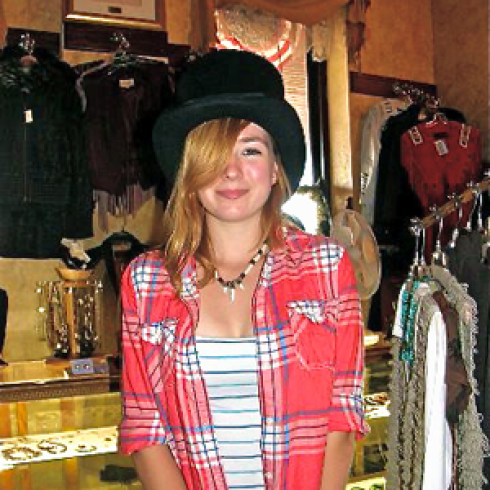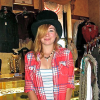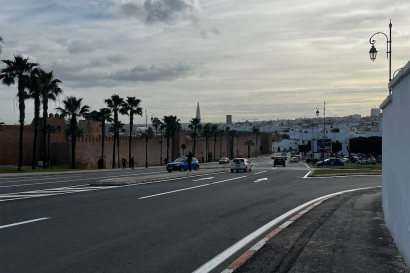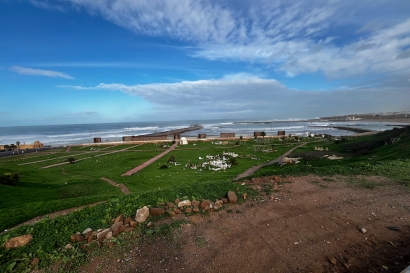After my program ends, my mom, dad, and brother are coming to visit me in Morocco for a week. We’re planning on traveling to Casablanca, Marrakesh, Meknes, Rabat, and into the Sahara. The following is just a few things I want to tell them before they come visit, and I think it’ll be helpful for other travelers who want to visit Morocco in the middle of December.
First off, I want to make it clear that just because it’s Africa doesn’t necessarily mean it’s hot all the time here. When I came here in August, it was very hot it Rabat, which is a coastal city, but it was way hotter in Meknes, which is further inland. Temperatures on the coast tend to be more mild, while temperatures inland can be more extreme. That being said, currently in early December the coastal city of Rabat, it is a rainy yet comfortable 63 degrees Fahrenheit. This is not so for the rest of the country. About a week ago, the program took the students on a trip to the Sahara. I used that break to visit Northern Ireland. The students driving to the desert saw far more snow than I did. It can get very cold here, especially at night, and many places don’t have heating. The take-away from this is that you should pack warm clothes that you can layer, and water-resistant jacket and shoes; It’s the rainy season.
Secondly, for travelers to Morocco at anytime of the year, staying healthy is a pretty big concern. Every student in my program got sick at one point or another, and for the most part, it was when we first arrived. When I came here, I knew I’d be here for four months and I’d have to get used to the tap water. I tried to slowly incorporate small amounts of tap water into bottled water to get my body adjusted. It worked, but it did leave my stomach in a huge question mark for a not-so-good two weeks. I would suggest to any travelers staying for only a short period of time (my family included) to stay away from the tap water; don’t even brush your teeth with it. On a similar note, don’t eat the food from street venders either. It’s not that it’s bad food, because it’s actually delicious, it just sits out all day. It took me about two months to get the stomach for it. Before you leave for your travels, take vitamins and get as healthy as you can. In fact, bring some vitamins with you. There’s not a real great trash disposal system, and you can really tell. It does not smell good here, and you’re constantly breathing it in. Also, they’re are a lot of street cats, which you should not pet. I still do, but I probably shouldn’t.
The languages most spoken here are French and the Moroccan dialect of Arabic called Darija. English is spoken, but it’s not very common. If you speak Modern Standard Arabic, you should be able to get around pretty well. MSA is very different from Darija, but it’s close enough. I’ve noticed that since I’m white, people assume that I speak French, not English or Arabic. I do speak French, so it’s fine, but for travelers that speak neither French or Arabic, try to learn some before you arrive in Morocco. For my dad, who has a background in French, brush up on it if you have the time, and teach Mom and Louis too. When ordering food or shopping, it’s very helpful to review how to say numbers, especially since the French numbering system seems to give up at 70. Going from there, it’d also be helpful to understand the metric system, along with learning what Celsius is.
Being a woman here sucks, and I’ll write a post on that at a later date. My mom and I will be accompanied by my dad and my brother the whole time so I’m not super worried about being harassed while with my family. However, we are foreign tourists, with only a loose grasp on the language, and cab drivers and shopkeepers will sometime try to take advantage of that. If you get in a cab and the meter isn’t on, and the driver won’t turn it on after you ask, get out of the cab. If the cab doesn’t have a meter at all, agree on a price before he starts driving. Shopkeepers will often double or triple the price of items because they know that a tourist won’t know the actual price. You’re gonna get ripped off here. I’m personally sick of it.
To my dad and my brother, people might come up to you and ask you for money more so than they will for mom and I. Since you’re men, it’ll be assumed that you have money and mom and I don’t. This could also make you a bigger target for pickpockets. Petty theft here is about as common as it is in New York City, so as long as you aren’t stupid about, you should be fine. However we are tourists and we stand out. Keep valuables (money, passport, phone) in a fully zipped bag on the front of yourself. Don’t keep stuff in your back pockets.
One last thing I feel I should mention only because it happened to me; hasheesh is very popular and also very illegal in Morocco. Do what you want, but if someone is following you down the street saying “Hasheesh, want hasheesh?”, it’s probably not a good idea to buy from them. I don’t care where you’re from or what country you’re in, someone following you trying to sell you drugs is either a crazy person or a cop.
Just like everywhere in the world, Morocco has some amazing people, and some not-so-amazing people. Morocco is a beautiful country with lots to offer, and can be a wonderful place to visit. Just stay healthy, safe, and positive.

Cayt Holzman
Hi! I'm Cayt and I study anthropology and French at Penn State. I'm studying abroad to further my education and I'm here to share my experiences with anyone who wants to read them.






